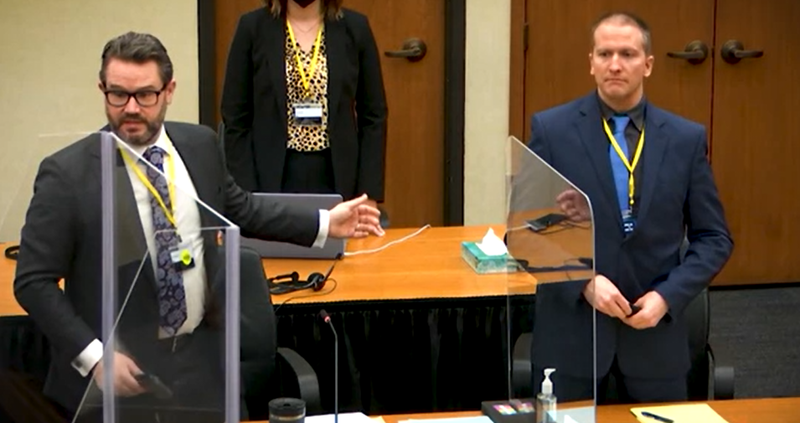
A federal judge sentenced former Minneapolis police officer Derek Chauvin to 245 months (just over 20 years) in federal prison on Thursday. That sentence will be concurrent with his state sentence of 22 ½ years for federal civil rights violations in the killing of George Floyd.
The biggest changes for Chauvin with the federal sentencing will be how much time he actually serves, and where he will serve that time.
Minnesota Corrections Commissioner Paul Schnell who talked about what happens next for Chauvin. Speaking with 5 Eyewitness News Chief Political Reporter Tom Hauser on the WCCO Morning News, Schnell why it is safer for Chauvin in the Federal system.
“I think ultimately, it's a larger system,” Commissioner Schnell said. “Minnesota was kind of ground zero for his criminal conduct, and the levels of awareness are certainly nationwide but heightened here in Minnesota.
Ultimately, for him to be able to spend that much, for anyone to spend that much amount of time in prison, the systems have an obligation to ensure a level of safety and want them to be able to access certain rehabilitative programs. Those sorts of things that can become important throughout the term of a person's confinement. And the federal system, just because of its size, will offer more of that than he would have if he were to serve out his sentence this year.”
Schnell also says that if Chauvin were in the state system, there would be far more restrictions on how he interacts with other inmates.
“Since he has been with us, he's been in administrative control, which is a very small (confined) area,” says the commissioner. “There's not interfaces with just broad, general population numbers. It is not segregation as such, but it is intended to be both for the safety of that person, that we can manage them with the minimum amount of movement of other incarcerated persons in the facility. That would be the case throughout his custody.
Schnell does add that even in the federal facilities. He says they will still have to be mindful of the same issues when it comes to high profile law enforcement officers and those can elicit a response from other inmates.
Chauvin is expected to serve around 18 years due to the federal sentencing which requires him to serve 85 percent of the 245 months he was given. That is more time than he would have served for the 22 ½ years he was given in his state sentencing.

